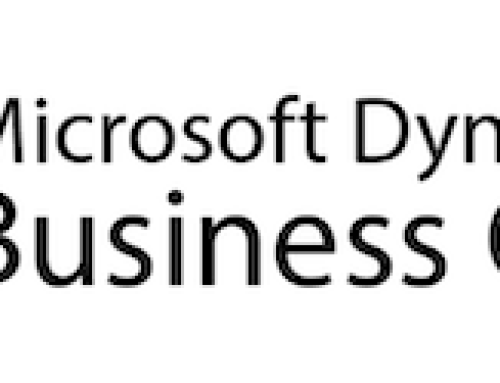There are no changes included in the 2024 Year-End Update that affect year-end processing for Analytical Accounting.
No, the year-end close process for Analytical Accounting is automatically integrated with the year-end close process for General Ledger. Therefore, there are no ‘separate’ steps that you need to run in Analytical Accounting to close it.
If you generate your financial reports from AA tables (such as Management Reporter Data Mart), it is highly recommended to run through the scripts KB 2910626 before you close the General Ledger year. The scripts in the article will compare AA data to GL data and return any discrepancies with the AA data, so you can fix the data prior to closing the year.
Finding these data discrepancies can also help you to monitor your if there are any ongoing issues in your environment. The scripts in this KB article can be run throughout the year as well. This will ensure the data between AA and General Ledger stays in sync if you are doing any financial reporting from AA tables.
If the data in the AA tables does not match General Ledger data, and financial reports are pulled from AA tables, then your financial reports may include inaccurate totals, and you won’t balance to the General Ledger Trial Balance reports. Missing or duplicated data in the AA tables can skew the beginning balance entries created in the AA tables. The first step is to determine if your financial reports use the AA tables or not. (You can determine this for Management Reporter under Microsoft Dynamics GP | Tools | Setup | Company | Company | Options in the MR section at the bottom to see if GL or AA is enabled.) If you do use AA tables and/or Management Reporter, it is highly recommended to run through KB 2910626 to help look for data discrepancies between AA and General Ledger that should be corrected before closing the General Ledger year.
Why wouldn’t data match between AA and General Ledger tables?
There are many reasons why AA data may not match the General Ledger data including:
- Posting interruptions, network connection issues, power fluctuations, etc. while posting can cause damaged data
- Data is imported
- AA is not installed on all machines
- General Ledger was closed on a machine in the past where AA was not installed
- Users disable AA when AA error messages crop up
- Multi-currency is not registered
Before closing the General Ledger year, we highly recommend running through the steps/scripts in these KB articles:
- KB 960356 – The Year End Close procedures for Analytical Accounting in Microsoft Dynamics GP.
- If you are using Management Reporter (MR) for your reporting, you should also run through KB 2910626 –Financial Reports from Management Reporter do not match the General Ledger Trial Balance Reports in Microsoft Dynamics GP.
Note: You can download all the scripts in KB 2910626 and run them in text (Control – T) before executing them. If any results are in the open years (i.e. AAG30000 series tables or GL20000) then you can just fix the data before closing the GL year.
The General Ledger Year-End close process will affect the following in the AA tables:
- Moves AA data from open tables (AAG30000-AAG30003) to the history tables (AAG40000-AAG40003)
- Creates Balance Brought Forward (BBF) entries in the AAG30000 series tables
- Consolidates balances and ties AA codes to the BBF entries for the AA dimensions that were marked to be included in the year-end close
What steps should I take to have AA included in the General Ledger Year-end close and BBF entries created in AA?
In order to have AA codes tied to your beginning balances created by the General Ledger year-end close, you must first verify that the following options are selected:
- In the Analytical Accounting Options window (Microsoft Dynamics GP >> Tools >> Setup >> Company >> Analytical Accounting >> Options), mark the checkbox for ‘Include dimensions in the year end close’ and click OK.
- In the Transaction Dimension Maintenance window (Cards >> Financial >> Analytical Accounting >> Transaction Dimension), select the AA dimension code you want a balance carried forward for, and mark the checkbox for ‘Consolidate balances during Year End close’ and click Save. Do this for each Transaction Dimension you wish to have linked to the beginning balance entries create by the General Ledger year-end close process.
Key points to remember:
- Follow the steps in KB 960356 titled “The Year-End close procedures for Analytical Accounting in Microsoft Dynamics GP”. This KB includes steps and SQL scripts to make sure the AA data matches General Ledger data. It also has steps to verify that the AA dimensions that you wish to be consolidated during the year-end close process are properly marked to create BBF entries, and steps on how to move data to history. You should determine if your reporting tool uses AA tables or not. Data Mart with Management Reporter now reads from AA tables, so it is more important than ever to make sure your AA data matches General Ledger data.
- Make sure the General Ledger year-end close is performed at a workstation that has AA installed and activated, and that users know not to disable AA if they receive any messages. Restore to the backup immediately and make a screen print of the AA error message if assistance is needed with the General Ledger year-end close process.
Be sure to refer to the 2024 Year-End Blog Schedule to review current and upcoming blog posts and other helpful resource links related to Year-End Closing for Dynamics GP.
CAL is here to assist our Dynamics GP customers with their year-end update/closing so please don’t hesitate to contact CAL Support at Support@calszone.com to schedule a time with one of our consultants so your year-end goes smoothly.
By CAL Business Solutions, Connecticut Microsoft Dynamics GP / 365 BC & Acumatica Partner, www.calszone.com
Read the original post at:https://community.dynamics.com/blogs/post/?postid=bf013baa-79ab-ef11-b8e8-6045bda70adc
















